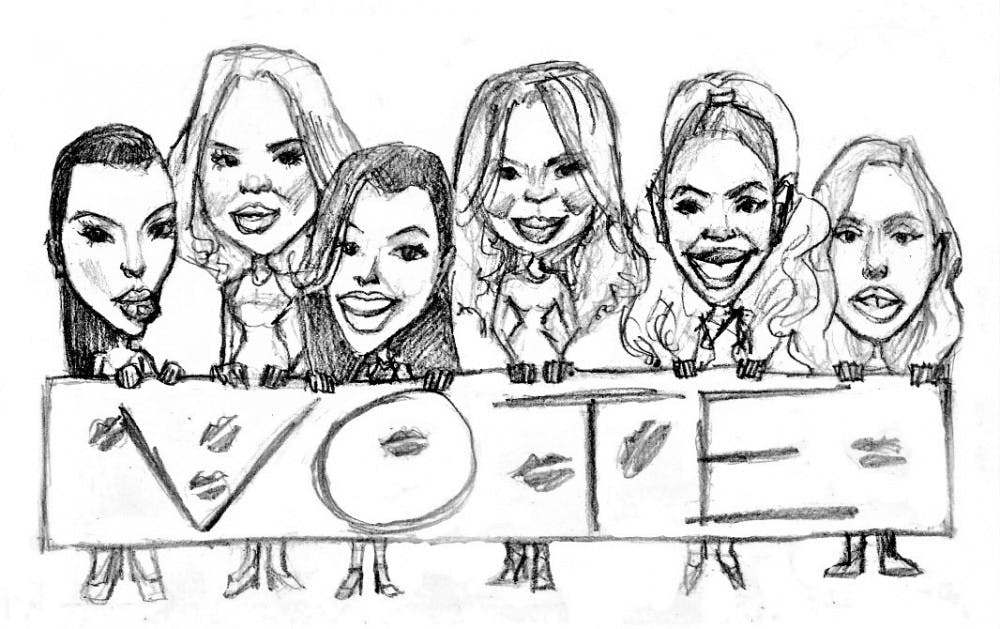Getting phone notifications from different apps has become expected and interacting with these apps has practically become second nature for most college students.
College students especially have capitalized on all of the features of their smartphones and have developed it to their advantage.
With the 2018 midterm elections approaching, social media influencers such as celebrities and brands have taken the lead in increasing civic engagement for their audience of young people, and that is exactly what they should be doing.
Targeting ASU students to vote needs to include tactics that they already interact with, which is where pop culture comes into play.
As the voter registration deadline rapidly approaches on Oct. 9 for the November 2018 midterm election, now is the time to branch out to new voters through innovative social media campaigns, especially when only 50 percent of people ages 18-29 turned out to vote for the 2016 election.
According to an ASU Morrison Institute study, "Only 29 percent of all Millennials living in Arizona during the 2016 election voted, compared with 62 percent of Baby Boomers."
Pop culture’s integration of politics, through these campaigns, can be a valuable tactic that is reflective of both our shifting values as a society and the societal standards that are being upheld.
Aviva Dove-Viebahn, an assistant English professor who has taught a course on women and power in pop culture, touched on the increasing role of celebrities and politics.
"I think that it makes sense that celebrities of various stripes would want to speak out about things that are happening in politics in culture and certainly its one way in which they can use their privilege of celebrity status to make a difference," Dove-Viebahn said.
On Twitter and Instagram, celebrities such as Chrissy Teigen and multiple members of the Kardashian family have made posts about the matters that they support. These issues include gun control, prison reform, reproductive rights and the importance of voting in general.
However, It’s not just celebrities trying to engage people more into politics, it’s also apps and brands being used everyday such as Postmates, Lyft, Instagram and more.
Dove-Viebahn said "most of us don't have that kind of platform to speak" about the decision for influencers to branch into politics.
Brands and celebrities can get scrutinized about their decision to align themselves with a specific cause, or for attempting to support civic engagement in general, but this is exactly how to get students involved.
Pop culture overlapping with politics increases pressure on students to be aware and engaged into the political world. Due to previous voter turnout patterns, this is exactly what they need.
Dove-Viebahn said that although there are benefits to politics and pop culture threading together, "We shouldn’t let the people with (some) sort of pop culture or celebrity status stamp in for our own political opinion."
Students should not mindlessly follow an influencer's opinion without applying their own input and perspective into the matter. Their massive platforms act as a gateway for more conversations from different viewpoints and for the normalization of participating in the political process.
Above all, the integration of politics into pop culture makes politics seem more accessible. Politics no longer comes across as something only the elite or older generations are primarily involved with.
The increased accessibility and involvement of politics may intimidate those who believe these topics shouldn't overlap because they are afraid of the power that comes with an increase in student voices being heard.
On the next Postmates order for Canes at 2 a.m., don't ignore their message and register to vote.
Reach the columnist at jguzma19@asu.edu or follow @JennyGuzmanAZ on Twitter.
Editor’s note: The opinions presented in this column are the author’s and do not imply any endorsement from The State Press or its editors.
Want to join the conversation? Send an email to opiniondesk.statepress@gmail.com. Keep letters under 500 words and be sure to include your university affiliation. Anonymity will not be granted.
Like The State Press on Facebook and follow @statepress on Twitter.




